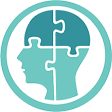Like it or not, stress is one of the inevitable aspects of adult life: we have all experienced it in challenging times, as a result of trauma. Some people even live with it every day.
Everyone understands the basic stress response symptoms but very few actually have an understanding of the physiological mechanisms that trigger stress and anxiety. What happens to the body, what are the long-term effects of being exposed to stress on a daily basis? Furthermore, how many types of stress does your body encounter and how are these influencing your overall health?
What is Chronic Stress?
From the point of view of biology, stress is what happens to an organism when it fails to address external threats. For the prehistoric man, those pressures were more basic and visceral in nature: predators, natural phenomena, the needs to hunt and feed. In modern times, these become subtler and diverse, and stress can be triggered by a multitude of factors: personal trauma, a critical family or personal event, a job related event, a prolonged crisis situation.
In short term exposure, acute stress can be beneficial, as it exerts pressure on your body to accomplish a series of goals.
But in the long-term, stress can reach chronic levels, with devastating effects. The repeated release of the stress hormone will create hyperactivity in the HPA (the hypothalamic-pituitary-adrenal system) leading to a disruption in serotonin levels. Some people have a better response to overactive HPA and seem to be able to adapt to long-term stress better than others. However, in most individuals, the inability to adapt to chronic stress is associated with the onset of anxiety, leading to depression and other afflictions.
Chronic stress brings about a string of deleterious consequences that will be addressed in this article.
What Happens in The Body? Cortisol- The Responsible Hormone
When faced with a stressful situation, the hypothalamus, a small area at the base of the human brain, triggers an alarm. This will tell your brain that danger is present. The parts of the brain that are responsible for the stress reaction are unable to tell the difference between real or imagined stress, even between beneficial or harmful stressful situations. This means that every stress alarm will motivate your brain to send immediate nerve signals through your spinal cord, immediately prompting your adrenal glands to release two main hormones: adrenaline and cortisol.
Adrenaline elevates blood pressure and elevates heart rate, while also boosting energy supplies. Cortisol, however, also known as the primary stress hormone is responsible for a surge in glucose levels throughout the body, from the bloodstream to the brain. It also shuts down functions that it considers non-essential in a stressful, fight or flight scenario. As a result, the immune system is affected, and so are the digestive system and growth processes.
Normally, in a short term stress situation, this process might not be detrimental. But when stressors are always present and your organism develops a sense of constantly being under attack, cortisol can wreak havoc in your body.
Elevated cortisol rates can damage and kill cells in your hippocampus. It can also induce premature aging of your brain, making it vulnerable to damage and strokes.
Effects of Elevated Cortisol Rates as a Reaction to Stress
Chronic stress puts your health at risk, causing a string of damaging effects, ranging from digestive diseases to diabetes and heart attack.
Suppression of the immune system
Soaring levels of cortisol in your body can damage your immune system irreparably. As a result, you would notice an increased susceptibility to colds, allergies and a tendency to develop auto-immune diseases and even cancer.
Increased risk of obesity
Continuous elevation of cortisol in your body will lead to weight-gain, by encouraging fat storage and developing adipocytes into actual fat cells. As a result, repeated exposure can increase the risk of obesity.
Onset of diabetes
A blood sugar imbalance is created in your organism, under chronic stress. By tapping into the gluconeogenesis process in your liver, cortisol encourages more glucose being distributed to the cells. The main cortisol function is to render body cells insulin resistant, which, over time will lead to early onset of type 1 and 2 diabetes.
Other detrimental effects
- Digestion and absorption of nutritive substances are affected, leading to gastrointestinal problems.
- Arterial constriction leads to high blood pressure, vessel damage, increasing the risk of heart attacks and other cardiovascular episodes.
- Dysfunction of the reproductive system can affect ovulation, menstrual cycles and induce erectile dysfunctions
- Associated issues are related to thyroid disorders, depression, insomnia, chronic fatigue.
Dealing with Chronic Stress: Therapy and Self- Help Alternatives
Activating your stress response on the long term can disrupt all your body’s natural processes. This is why it is very important to learn a few healthy ways to deal with chronic stress.
- Eat a healthy diet rich in antioxidants: vegetables, fruit and green tea
- Get enough exercise on a daily basis. Consider mind-body practices like yoga or tai chi.
- Start a meditation practice every day
- Lean mind- body relaxation techniques, such as autogenic training, biofeedback, even self-hypnosis.
While stress and anxiety may seem to be unavoidable today, making sure you take a few proactive steps to reduce their effects on the body will help you in the long run.
If you are affected by chronic stress symptoms, as a result of personal trauma, you may need help with professional therapy sessions and alternative treatments.
Book an Austin appointment of a free 20-minute consultation with reputable Austin Bridges Therapy today and start living a stress-free and healthier life.








